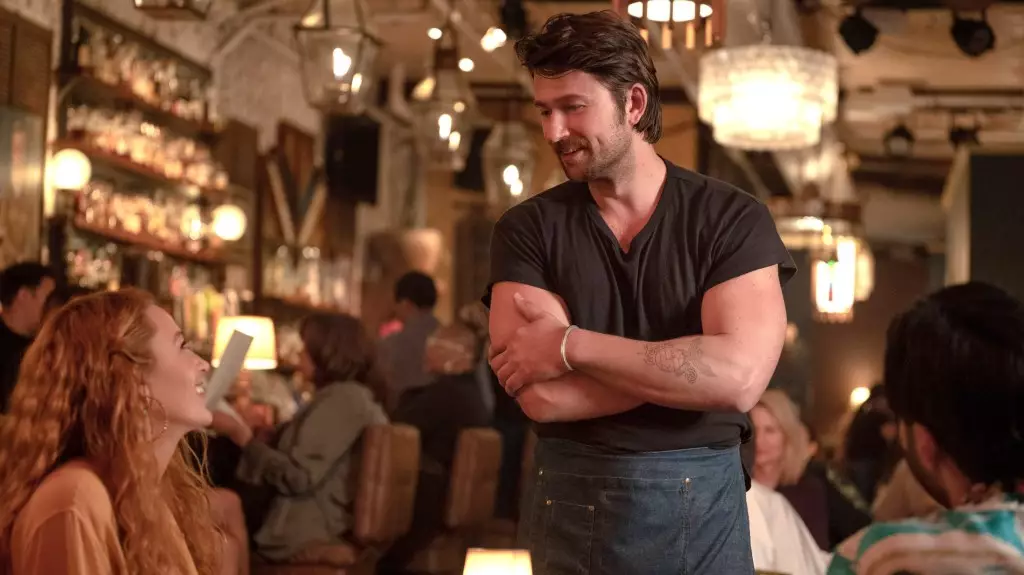The recent controversy surrounding the film *It Ends With Us* has catapulted the entertainment industry into a whirlwind of accusations, support, and calls for accountability. Following Blake Lively’s public complaint against co-star and filmmaker Justin Baldoni, the industry has rallied around Lively, exposing troubling dynamics typically obscured in Hollywood’s glitzy veneer. The gravity of the allegations, which include claims of sexual harassment and a concerted smear campaign against Lively, has prompted an unprecedented response from both the public and industry insiders.
The Core Allegations Against Baldoni
Lively’s 80-page complaint against Baldoni outlines a series of shocking behaviors that allegedly created a hostile work environment. According to the document, Baldoni’s actions not only disrupted the filming of the movie but also posed significant emotional and psychological stress on Lively. Key allegations include him improvising intimate scenes without consent, making inappropriate sexual remarks, and even showing her explicit materials of other women. These actions, if proved, reflect a troubling imbalance of power endemic in many industries, particularly in Hollywood.
The claim of “astroturfing”—suggesting a manufactured grass-roots support campaign—further complicates the situation. This tactic was reportedly employed in response to Lively’s refusal to remain silent. Such strategies are often invoked to discredit victims and maintain the status quo, keeping powerful figures like Baldoni insulated from repercussions despite their alleged misconduct.
In the wake of Lively’s accusations, several Hollywood figures rallied to her defense. Actor Brandon Sklenar’s call to action on social media encouraged fans and industry members alike to read the complaint, underscoring the importance of believing and supporting those who speak out against abuse. His passionate appeal reflected a growing willingness within Hollywood to confront uncomfortable truths about misconduct rather than ignore them.
The swift reaction from Baldoni’s agency, WME, which dropped him shortly after the allegations surfaced, indicates a significant shift in how the industry might respond to sexual harassment claims. This response stands in stark contrast to past behaviors, where accused individuals often retained their positions or even received support from industry networks. Notably, Amber Heard’s condemnation of the backlash against Lively reinforces the collective rejection of toxically defensive forms of public discourse aimed at silencing victims.
Even as support for Lively grows, it’s critical to discuss the perils of the public’s social media reactions. Sklenar pointed out how online vilification of individuals who are already grappling with trauma undermines the very messages of resilience and advocacy that films like *It Ends With Us* aim to convey. The danger of allowing social media narratives to dictate public opinion can lead to further victimization, creating environments where survivors feel pressured into silence rather than empowered to speak.
The situation also raises questions about the role of professional organizations like SAG-AFTRA in advocating for those who come forward. Their swift condemnation of Baldoni’s alleged actions signifies a potential turning point in ensuring that performers are able to work within safe environments devoid of harassment or intimidation.
The unfolding events surrounding *It Ends With Us* serve as a critical reminder of the power dynamics that often dictate Hollywood’s narratives behind-the-scenes. Blake Lively’s courageous decision to speak out, supported by fellow actors and industry allies, signifies a potential pivot towards greater accountability in the entertainment sector. This incident transcends mere celebrity gossip; it delves into broader issues of consent, power abuse, and the necessity for an industry-wide reevaluation of how allegations are handled. If changes are to be realized, continued support for those who bravely share their experiences is essential, along with systemic reforms that prioritize safety and respect for all individuals, regardless of their status in the industry.


Leave a Reply